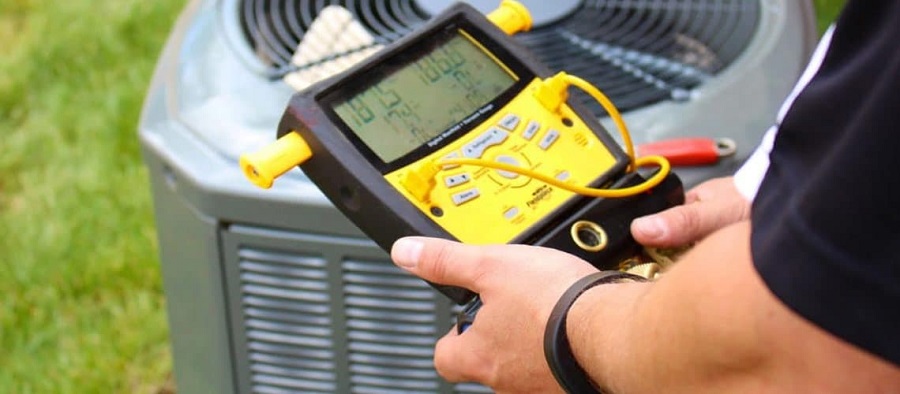As the cold months settle in, the last thing you need is for your heating system to stop providing warmth. This issue can lead to significant inconvenience and discomfort, especially if you haven’t made any preparations. The frigid air can creep through your walls, leaving you shivering and searching for solutions.
When you find yourself in such a predicament during winter, there are essential troubleshooting steps to explore before reaching out to a professional in heating and cooling solutions. These actions can help you identify the problem and possibly resolve it on your own. Here are some suggestions to consider if your heat suddenly goes out in winter:
Check the Thermostat
Begin by verifying the thermostat to make sure it’s set to your preferred temperature and in heating mode. It could have been inadvertently set to a lower temperature or switched to cooling mode, which could explain why there’s no heat. Correcting the settings should help bring back the warmth.
Examine the Circuit Breaker
If your heating system is not working, a tripped circuit breaker might be the cause. Take a look at your circuit breaker panel to see if any breakers have flipped to the off position. If you see one that has tripped, you can easily reset it by turning it off and then back on. This straightforward action could get your heating system running again.
Look at the Pilot Light
If you own a gas furnace, inspect the pilot light. Relight it following the manufacturer’s guidelines if it’s gone out. A pilot light that doesn’t remain lit could signal a more significant problem, and it’s best to seek assistance from a professional HVAC technician.
Inspect for Any Obstructed Vents
Blocked or closed vents can hinder airflow and stop heat from reaching various parts of your home. Make sure all vents are open and clear of any obstacles. Relocate any furniture or items that might be blocking the vents to ensure even heat distribution throughout your space.
Ensure Sufficient Fuel Supply
If you heat your home with oil or propane, make sure you have enough fuel on hand. Take a look at the gauge on your fuel tank to confirm it’s not running low. If needed, schedule a delivery to replenish your supply and keep your home warm.
Replace the Air Filter
A filthy or blocked air filter can hinder airflow and decrease the efficiency of your heating system. It’s essential to inspect the air filter regularly and replace it if it looks dirty or hasn’t been changed in some time. Keeping the filters clean ensures proper air circulation, which is crucial for effective heating.
Reset the System
Some heating equipment has a button that allows you to reboot it. This switch is usually located on the furnace or boiler. Resetting the unit might help fix any minor problems that were causing heat loss.
Reach Out to a Trusted HVAC Technician
If you’ve gone through these basic troubleshooting steps and still aren’t getting any heat, it’s advisable to get in touch with a qualified HVAC contractor. They possess the necessary skills to identify and resolve more complicated heating system problems. You can also count on them if you’re uncertain or feel uneasy about doing any of these troubleshooting actions. Always prioritize your safety when handling heating systems.
Conclusion
When confronted with the challenge of losing heat during winter, it’s essential to stay composed and take swift action. Knowing how to handle the circumstances can significantly impact your safety and well-being.
Remember to evaluate the situation. You can keep warm by layering your clothing and utilizing alternative heating sources. Conserving heat within your living space, staying hydrated, and maintaining connections with others is also crucial. By following these tips, you can ensure your safety and well-being until the heat is restored.
To avoid being caught in the frosty weather, it’s wise to consult an HVAC professional promptly to ensure your systems are in optimal condition. Their maintenance services and comprehensive heating and cooling solutions can help ensure your winter experience is cozy and stress-free. Remember, the more steps you take to care for your home and yourself, the safer and more comfortable your cold season will be.

